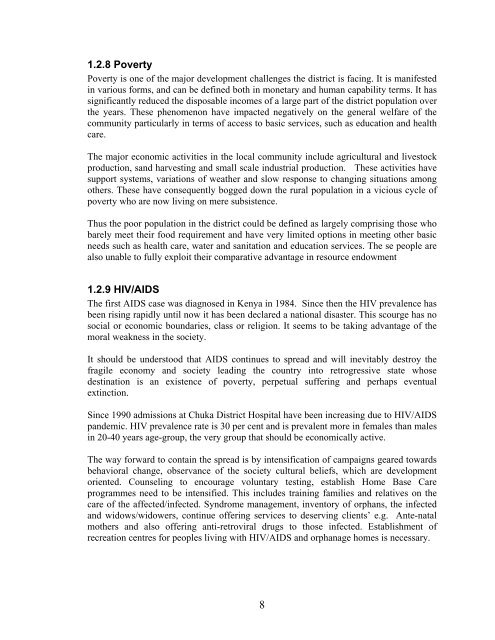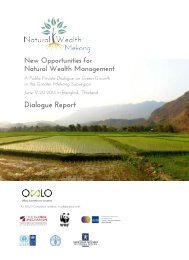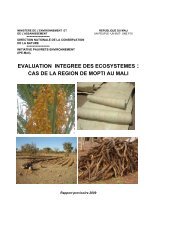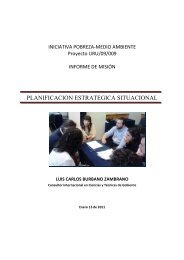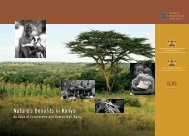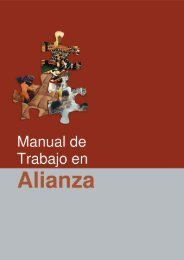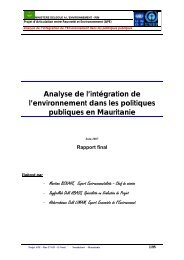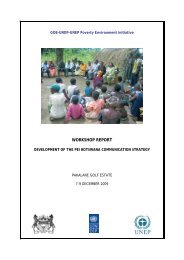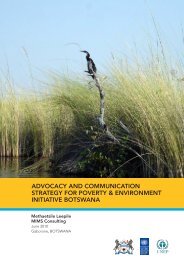Meru South District - UNDP-UNEP Poverty-Environment Initiative
Meru South District - UNDP-UNEP Poverty-Environment Initiative
Meru South District - UNDP-UNEP Poverty-Environment Initiative
You also want an ePaper? Increase the reach of your titles
YUMPU automatically turns print PDFs into web optimized ePapers that Google loves.
1.2.8 <strong>Poverty</strong><br />
<strong>Poverty</strong> is one of the major development challenges the district is facing. It is manifested<br />
in various forms, and can be defined both in monetary and human capability terms. It has<br />
significantly reduced the disposable incomes of a large part of the district population over<br />
the years. These phenomenon have impacted negatively on the general welfare of the<br />
community particularly in terms of access to basic services, such as education and health<br />
care.<br />
The major economic activities in the local community include agricultural and livestock<br />
production, sand harvesting and small scale industrial production. These activities have<br />
support systems, variations of weather and slow response to changing situations among<br />
others. These have consequently bogged down the rural population in a vicious cycle of<br />
poverty who are now living on mere subsistence.<br />
Thus the poor population in the district could be defined as largely comprising those who<br />
barely meet their food requirement and have very limited options in meeting other basic<br />
needs such as health care, water and sanitation and education services. The se people are<br />
also unable to fully exploit their comparative advantage in resource endowment<br />
1.2.9 HIV/AIDS<br />
The first AIDS case was diagnosed in Kenya in 1984. Since then the HIV prevalence has<br />
been rising rapidly until now it has been declared a national disaster. This scourge has no<br />
social or economic boundaries, class or religion. It seems to be taking advantage of the<br />
moral weakness in the society.<br />
It should be understood that AIDS continues to spread and will inevitably destroy the<br />
fragile economy and society leading the country into retrogressive state whose<br />
destination is an existence of poverty, perpetual suffering and perhaps eventual<br />
extinction.<br />
Since 1990 admissions at Chuka <strong>District</strong> Hospital have been increasing due to HIV/AIDS<br />
pandemic. HIV prevalence rate is 30 per cent and is prevalent more in females than males<br />
in 20-40 years age-group, the very group that should be economically active.<br />
The way forward to contain the spread is by intensification of campaigns geared towards<br />
behavioral change, observance of the society cultural beliefs, which are development<br />
oriented. Counseling to encourage voluntary testing, establish Home Base Care<br />
programmes need to be intensified. This includes training families and relatives on the<br />
care of the affected/infected. Syndrome management, inventory of orphans, the infected<br />
and widows/widowers, continue offering services to deserving clients’ e.g. Ante-natal<br />
mothers and also offering anti-retroviral drugs to those infected. Establishment of<br />
recreation centres for peoples living with HIV/AIDS and orphanage homes is necessary.<br />
8


